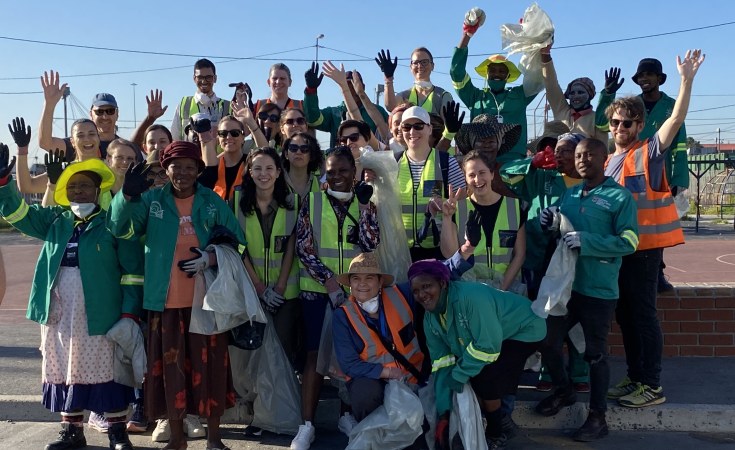Nairobi — The Kenya Plastics Pact, a collaborative platform comprising critical stakeholders from the government, the private sector including manufacturers and retailers, Extended Producer Responsibility Organizations (PROs), civil society, and the informal waste sector, has announced its commitment to combat plastic pollution through innovative solutions.
The Pact will also support its Members to comply with the Extended Producer Responsibility (EPR) provisions under the Sustainable Waste Management Act (2022), where one of the key objectives is alignment with the circular economy's goals, including providing a framework for the responsible management of plastic waste.
Plastic pollution has emerged as a global environmental crisis, with Kenya being no exception.
The Kenya Plastics Pact recognizes the urgency of addressing this challenge and is dedicated to driving systemic change across the plastics value chain.
With result-oriented activities led by members and supporters, the Pact is focused on accelerating progress toward a sustainable future by establishing a shared vision, a collaborative action plan and ambitious targets towards creating a circular economy for plastics in Kenya.
The Kenya Plastics Pact aims to eliminate unnecessary or problematic single-use plastic packaging items through redesign, innovation, and reuse delivery models and ensure 100 percent of plastic packaging is reusable or recyclable.
It also seeks to ensure 40 percent of plastic packaging is effectively recycled and increase the average recycled content to 15% across all plastic packaging.
For this reason, the Pact is increasingly engaging its Members for consultative workshops to forge a consensus on the best strategy for implementing the activities outlined in the Pact's Roadmap to 2030.
One of the approaches being discussed is the EPR, a critical framework by the Government that the Kenya Plastics Pact supports.
"We're helping stakeholders in the plastics value chain to work together to redesign the plastics system, eliminate unnecessary and problematic plastic items, increase the recycling rate and reuse of plastics, and support a circular economy. We seek to inspire change in how plastic is produced, used, and disposed of in Kenya and to serve as a model for other countries in the region and beyond," said Ebenezer Amadi, the Program Manager at Sustainable Inclusive Business, the KPP Secretariat.
EPR shifts the government's responsibility for plastic waste management to the producers using a product lifecycle approach. Section 13 of the Act requires that all producers that introduce products to the Kenyan market bear mandatory responsibility for the post-consumer stage and their products' lifecycles, from design and cleaner production, prioritize re-use, increase recycling rates for technical materials and safe disposal in an engineered landfill.
By holding producers accountable for the entire product lifecycle, EPR promotes circularity and reduces the negative environmental impact of plastic waste.
"As the private sector, the time to act is now, as we build momentum towards implementation mechanism for EPR in the global south. The Pact plays a critical role by mobilizing private sector members and supporting the government and the PROs in education and awareness campaigns, especially regarding the producers' obligations under the Act. This is key in kicking off the road map to compliance," noted Faith Ngige - Coordinator, Climate Business Information Network - Kenya (CBIN-K) under the Kenya Private Sector Alliance.
The commencement date for the Sustainable Waste Management Act was 26th July 2022; hence, the law is fully operational.
Producers should therefore undertake their EPR responsibility immediately without further delay.
In this regard, NEMA has organized an info session for all producers in Kenya to elaborate on what is expected of them in demonstrating compliance with section 13 of the Sustainable Waste Management Act (2022).


